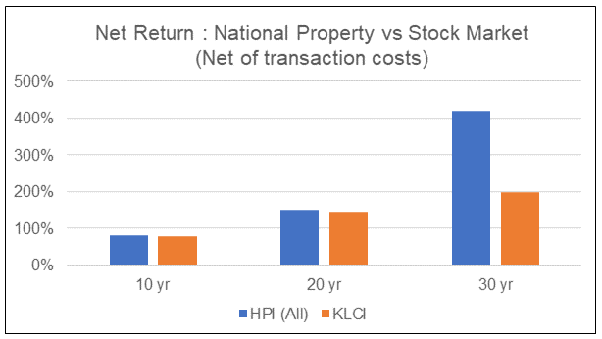
How can you decide which stock is right for you? When you are considering investing in stocks, there are many factors that you need to take into account. First, make sure you read the company’s annual report. This report will provide information about the company's financial performance as well as its bottom line. Quarterly reports will also provide you with important financial information and details about the company. You should keep an open mind when reading these reports and have a strategy in place.
Value stocks
You need to be familiar with certain metrics in order to buy value stocks. The price-to-earnings ratio is one example of such a metric. This ratio is crucial in determining the stock's value. This ratio is a measure of how much the company's earnings compare to its market price. It will also give an indication of future earnings expectations. This metric will help you make an informed decision on which value stocks to purchase.
Many high quality companies will see their value increase as the Federal Reserve raises its interest rates. In addition to being undervalued, value stocks often do very well in an inflationary environment. Computer Task Group, Inc., Titan Machinery Inc., KT Corporation, all are examples of valuable stocks. These stocks are great investments, depending on your risk tolerance. Many analysts currently rate the stock as a Strong Buy.

Growth stocks
The first step to selecting high-growth stocks is to identify a major trend. For example, the rise of digitization over the past two decades paved the way for the rise of e-commerce, streaming entertainment, and cashless payments. Investors in growth stocks look for companies that can benefit from these changes. These include those that are already profitable but are still looking for new avenues to success. Here are some examples companies that are making waves on stock markets.
It is possible to invest in companies that are innovative and a good way to grab a slice of the huge growth pie. Investors who invest in these companies have an advantage. It gives them the chance to invest with the next Apple, Facebook and Google. This type of investment can help you grow your stock portfolio. If you have the patience as well as the knowledge to spot the best growth stocks it is possible build a portfolio with top-performing companies that will provide great returns.
Dividend stocks
You need to be familiar with the various factors you should look out for when investing in dividend stocks. Listed below are some of the most important factors to consider before you buy. A dividend is a portion of the company's profits. If the company's dividend payments are high, it might not be financially viable in the long-term. Also, check out the company's debt-to-equity ratio, which can indicate that the company might not be viable in the long run.
Dividend investing offers a low level of risk, which is one of its key advantages. It is a great way of building long-term wealth, even though it may seem conservative. In fact, dividends account for over 40% of the S&P500's total return in the last 80 years. That means you take less risk investing in high yielding stocks than you do if you did so. You shouldn't buy only the highest paying stocks. Many times, high dividends have a good reason.

Dividend stocks have potential for growth
While you are researching, you may be wondering if dividend stock have potential for growth. There are many factors that can help you live longer and the U.S. has a growing population. Apple is a good example. It is increasing in sales and profit margins. In fact, the company had gross profit margins of 38% and 72% for its products in the first two quarters.
For dividend growth to be profitable, you should choose companies with strong Moats to protect their profits. Warren Buffett does it by buying companies with strong moats. They can't protect the market position. If this happens, their stock price will likely plummet. You can still choose a dividend stock that offers room for growth and has a high yielding dividend, which is highly respected by investors.
FAQ
What is a Bond?
A bond agreement between two people where money is transferred to purchase goods or services. It is also known by the term contract.
A bond is usually written on a piece of paper and signed by both sides. The bond document will include details such as the date, amount due and interest rate.
The bond is used when risks are involved, such as if a business fails or someone breaks a promise.
Sometimes bonds can be used with other types loans like mortgages. This means that the borrower must pay back the loan plus any interest payments.
Bonds are also used to raise money for big projects like building roads, bridges, and hospitals.
A bond becomes due when it matures. This means that the bond's owner will be paid the principal and any interest.
Lenders lose their money if a bond is not paid back.
What is security in a stock?
Security is an investment instrument whose value depends on another company. It can be issued by a corporation (e.g. shares), government (e.g. bonds), or another entity (e.g. preferred stocks). The issuer can promise to pay dividends or repay creditors any debts owed, and to return capital to investors in the event that the underlying assets lose value.
Why are marketable securities Important?
An investment company's main goal is to generate income through investments. It does so by investing its assets across a variety of financial instruments including stocks, bonds, and securities. These securities have attractive characteristics that investors will find appealing. They may be safe because they are backed with the full faith of the issuer.
Marketability is the most important characteristic of any security. This refers to the ease with which the security is traded on the stock market. Securities that are not marketable cannot be bought and sold freely but must be acquired through a broker who charges a commission for doing so.
Marketable securities are government and corporate bonds, preferred stock, common stocks and convertible debentures.
These securities are often invested by investment companies because they have higher profits than investing in more risky securities, such as shares (equities).
What is the difference between the securities market and the stock market?
The entire market for securities refers to all companies that are listed on an exchange that allows trading shares. This includes options, stocks, futures contracts and other financial instruments. Stock markets can be divided into two groups: primary or secondary. Large exchanges like the NYSE (New York Stock Exchange), or NASDAQ (National Association of Securities Dealers Automated Quotations), are primary stock markets. Secondary stock markets allow investors to trade privately on smaller exchanges. These include OTC Bulletin Board Over-the-Counter, Pink Sheets, Nasdaq SmalCap Market.
Stock markets are important as they allow people to trade shares of businesses and buy or sell them. The value of shares is determined by their trading price. New shares are issued to the public when a company goes public. Investors who purchase these newly issued shares receive dividends. Dividends are payments that a corporation makes to shareholders.
Stock markets not only provide a marketplace for buyers and sellers but also act as a tool to promote corporate governance. Shareholders elect boards of directors that oversee management. Managers are expected to follow ethical business practices by boards. If a board fails in this function, the government might step in to replace the board.
How are securities traded
Stock market: Investors buy shares of companies to make money. To raise capital, companies issue shares and then sell them to investors. These shares are then sold to investors to make a profit on the company's assets.
Supply and demand are the main factors that determine the price of stocks on an open market. The price of stocks goes up if there are less buyers than sellers. Conversely, if there are more sellers than buyers, prices will fall.
There are two ways to trade stocks.
-
Directly from the company
-
Through a broker
Statistics
- US resident who opens a new IBKR Pro individual or joint account receives a 0.25% rate reduction on margin loans. (nerdwallet.com)
- Individuals with very limited financial experience are either terrified by horror stories of average investors losing 50% of their portfolio value or are beguiled by "hot tips" that bear the promise of huge rewards but seldom pay off. (investopedia.com)
- For instance, an individual or entity that owns 100,000 shares of a company with one million outstanding shares would have a 10% ownership stake. (investopedia.com)
- The S&P 500 has grown about 10.5% per year since its establishment in the 1920s. (investopedia.com)
External Links
How To
How to Invest in Stock Market Online
The stock market is one way you can make money investing in stocks. There are many ways to do this, such as investing through mutual funds, exchange-traded funds (ETFs), hedge funds, etc. Your risk tolerance, financial goals and knowledge of the markets will determine which investment strategy is best.
First, you need to understand how the stock exchange works in order to succeed. Understanding the market and its potential rewards is essential. Once you understand your goals for your portfolio, you can look into which investment type would be best.
There are three major types of investments: fixed income, equity, and alternative. Equity refers a company's ownership shares. Fixed income refers debt instruments like bonds, treasury bill and other securities. Alternatives include commodities like currencies, real-estate, private equity, venture capital, and commodities. Each category has its own pros and cons, so it's up to you to decide which one is right for you.
Two broad strategies are available once you've decided on the type of investment that you want. One strategy is "buy & hold". You purchase some of the security, but you don’t sell it until you die. Diversification refers to buying multiple securities from different categories. If you purchased 10% of Apple or Microsoft, and General Motors respectively, you could diversify your portfolio into three different industries. Buying several different kinds of investments gives you greater exposure to multiple sectors of the economy. It helps protect against losses in one sector because you still own something else in another sector.
Another key factor when choosing an investment is risk management. Risk management allows you to control the level of volatility in your portfolio. If you are only willing to take on 1% risk, you can choose a low-risk investment fund. You could, however, choose a higher risk fund if you are willing to take on a 5% chance.
Knowing how to manage your finances is the final step in becoming an investor. You need a plan to manage your money in the future. A good plan should cover your short-term goals, medium-term goals, long-term goals, and retirement planning. Then you need to stick to that plan! Keep your eyes on the big picture and don't let the market fluctuations keep you from sticking to it. You will watch your wealth grow if your plan is followed.